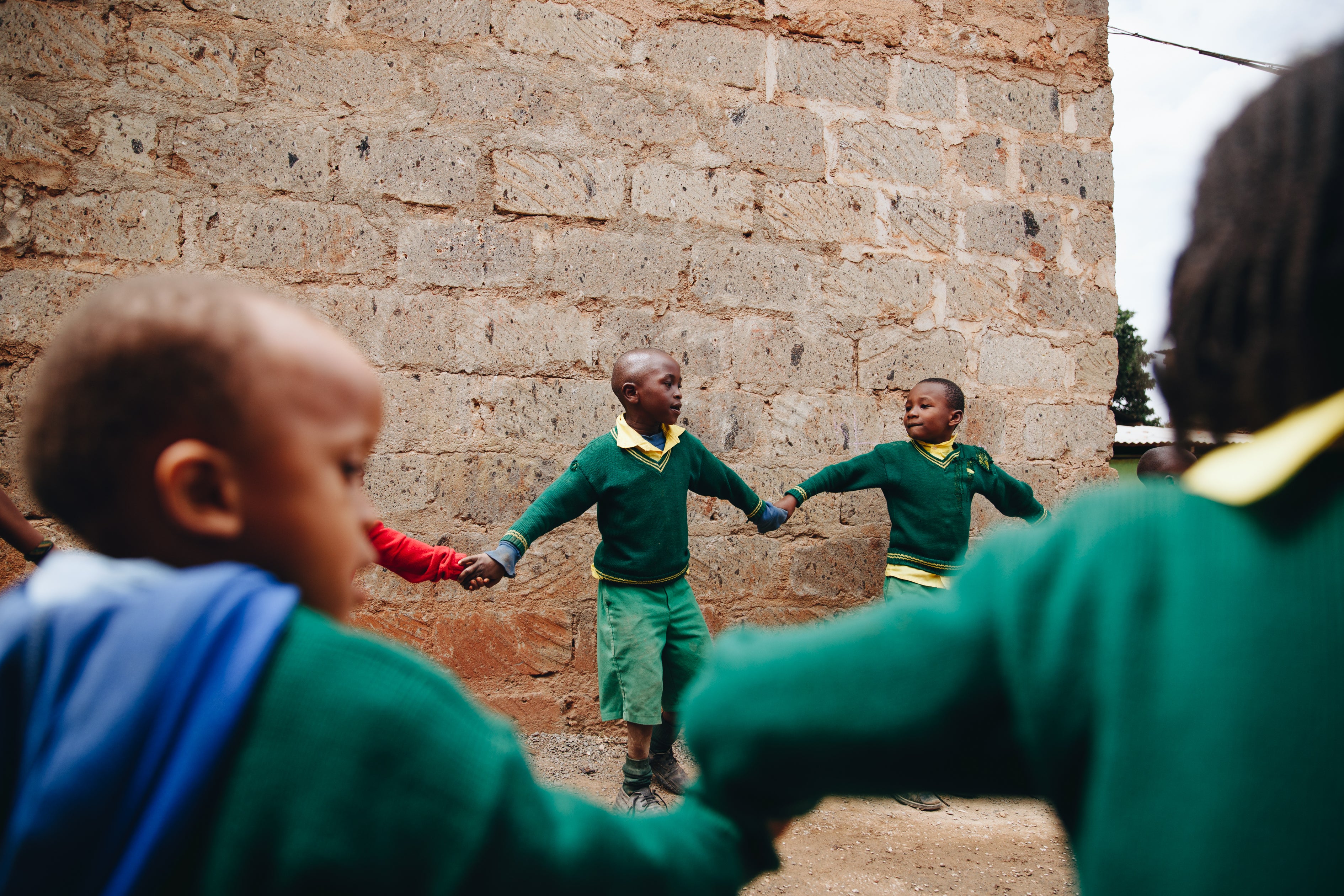
Hopscotch, rope and wooden leg: why are games important in childhood?
* Written by Tribo Educa and Fernanda Galeoti
There's an incredible phrase by Mário Quintana that says: "Children don't play games. They really play". This sums up all the salutary power that “playing” carries in human development.
It is in this process of playing that we develop our "imaginative creativity" and the freer the play, the more potent it becomes. This power makes our THINKING LIVE, a key element for solving challenging problems and situations, as well as keeping our resilience nourished: THERE IS ALWAYS ANOTHER WAY!
When playing, we experience different characters, plots and environments, offering neurosensorial and emotional plasticity, adapting and expanding thoughts and feelings. Here is a great opportunity to experience empathy as we learn to share toys and exercise leadership in play.
It is important that this play is free, but with the attention of the adult to prepare the environment with diversified resources so that the neurosensorial and cultural repertoire of the child is expanded. This doesn't mean changing everything or making everything available to her every day. It is advisable to maintain a routine and also repeat activities.
An example of this is choosing a day of the week to play in the park. The time is combined and I leave the child free to play and explore as they wish. I don't teach how to slide, what you have to do on the jungle gym, because the possibilities are countless and for each child it will have a different meaning: for some, going up and challenging yourself is scary, for others, not; some like to watch the ants on the ground and all these exposures can result in the internal experience of the same learning processes.
An important point is that every game has an end and we can do this in a way that the child understands and participates in this development. In practice, this also means using creative references: for young children you don't use chronological time, but concrete. You can tell her that when the sun is high and hot this will be the time to go, as this indicates lunchtime. And when it's close to time to go, signal: 10-15 minutes to go or we'll be leaving soon. Finish by complying with the agreement. In this way, the child experiences a beginning-middle-end, he does not feel kidnapped from his world of play!
We can let the child play freely with everything, not just structured toys; playing cards and games are pretty cool too. They can create a lot and still, at a certain point, realize that there are different symbols, and they look to us to decipher and help them in these processes. This is how integral and natural literacy takes place.
Singing games are another excellent opportunity for development: words, rhythms, rhymes, accents, metaphors. And if the body is in motion, growth in fine and gross motor coordination, laterality, proprioception or body geography is added. We can go around the world with singing games!
The benefits of playing are really countless and they are all scientifically validated. Remember that the fertile ground for playing is childhood. Don't deny them that for nothing. Everything has its time. The "childhood state" does not last long, and we cannot relive it. We will never have this imagination and “delivery” rescued. The other moments of life will come to learn and do all the other things that also carry their due importance. So: LEAVE THE CHILDREN ALONE! And free to play!



Brincar é a forma que a criança tem de aprender e experienciar a vida. Sem esquecer que o brincar cura traumas. Viva o Brincar <3
Boa noite Através do brincar podemos conhecer a nossa cultura e até modificá-la, parabéns gostaria muito de contribuir, fiquem com Deus amém.